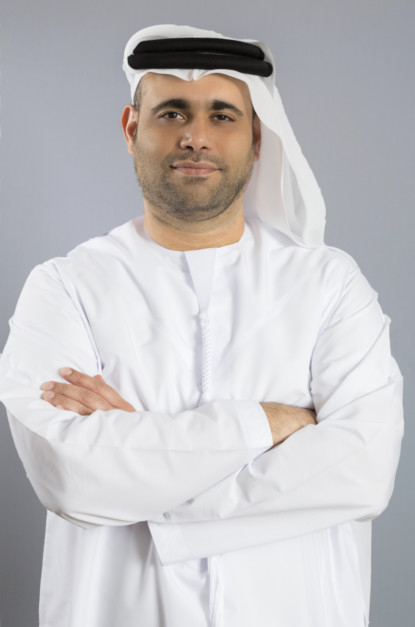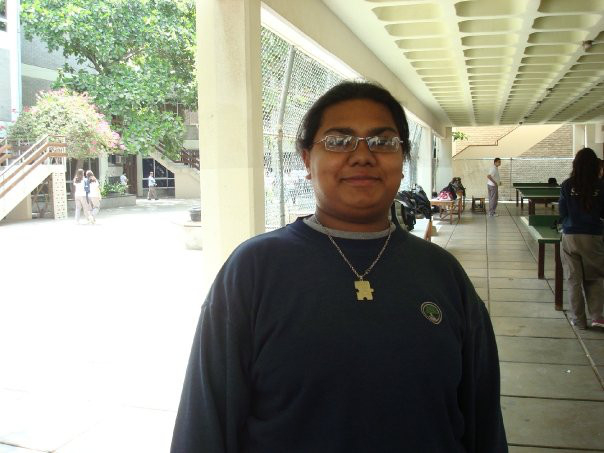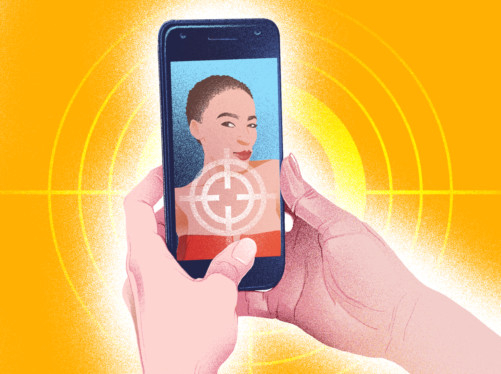
Reality
Most are aware of what they are getting into
I do think they are giving up their right to privacy. When people sign up on social media and start posting things, they are consciously doing it. They are, with their own knowledge, giving out their information. I don’t think they are as concered about privacy because if you are on a social media platform, like Instagram especially, you know that it is public. Because that information is available to anybody.
I am assuming that they are doing it with the intention that their friends can see it but I do not think they are completely unaware that their private life has become public. Because if you t,ink about it, a lot of people have become celebrities through social media and a lot of people are using it to get a little more popular. You would not have Justin Beiber or Superwoman unless people were doing that. They were common people once, so I am assuming that a lot of people are getting on social media to get attention. This is why in a lot more videos people try to be out there and adventurous.
People using social media are not daft. They know exactly what they are doing. Yes, some people are more sheltered and they don’t know what they are getting themselves into, but most people know exactly how much exposure social media has. So, when you go on social media you are letting people in. Trying to protect your privacy is kind of pointless in such a situation.
From Ms Charmaine Fernandez
Customer services advisor living in Abu Dhabi
Unforgiving
Do you know your account is not private?
I agree that people have a right to their privacy and if somebody is using your information, picture or comment without consent, it is definitely against the law and should not be done. The second aspect is social media where people are uploading everything about their lives, from getting a haircut to drinking coffee, which, again, is fair. Anyone should be able to do that. But if you leave your account’s privacy settings open, anybody can access it because if you read into the terms and conditions on social media sites like Facebook, it mentions that your posts can be publically used unless mentioned otherwise. So, if people have posted on a public platform, this ultimately means they are letting go of their right to privacy on social media and to their personal life.
I don’t think there is anything wrong if the media or a newspaper re-shares it because if the person has not made sure that their settings are private they have essentially let go of that right. It is going to get picked up and they cannot do anything about it.
In the age of social media when everybody is aware what they post online in exchange for likes and comments, they definitely know this. For example, those who are making money out of their social media accounts already know that they are not a private account. They also are aware of what they should or should not post. But there are people who are unaware about these settings, and they should definitely be made aware because people are forfeiting their right to privacy if they do not change their settings. If you are unaware, it is unfortunate, because you will have to bear the brunt of being on social media.
From Mr Rehan Khalid
Events manager living in Dubai
Respect
Even public figures have private lives
There are two angles to it. Firstly, as an individual, people are sharing a lot about their personal life so much so that they even wish ‘Happy birthday ‘to the person sitting next to them. So excessive public display of affection or public display of information are unsuitable as they don’t reflect well on the person’s genuineness or intellect. For example, if your husband is sitting next to you, do you really need to post it on Facebook and let the whole world know? You could just turn around and wish him a happy birthday.
On the other hand, when it comes to media organisations, in most of the cases privacy breach does not happen unless you are a renowned person or a celebrity. Even then, invading their personal space is a gross violation of privacy. You have a certain aspect of your life which you have made public, what you do on your holiday has got nothing to do with others. That is just grossly unfair if you are telling me that a public figure can’t lead a private life. Don’t sell your conscience to sell a few extra copies of your magazine.
But as for non-celebrities if you choose to make a certain private moment viral then it carries certain implications that you should be aware of beforehand. For example, my Instagram account is private, so is my Facebook and Twitter account because I don’t want anybody snooping around. I do get invites, but I choose to accept only those invitations that I deem fit. I don’t allow everyone access because that is my private space and I choose to keep it that way. But if you are allowing your page to be public, then it carries certain implications, which you should be well aware of.
Unfortunately, in today’s world other people’s lives have become so interesting that we have forgotten to sort out our own private lives. So much so that in a private gathering communication has dwindled because we are all immersed in our own gadgets. If not addressed, this will only worsen with time.
From Ms Zainab Mansoor
Journalist living in Dubai
Interest
Do people really care about their right to privacy?
It is not just about the right to privacy, it is more about your ability to decide what should be disclosed to the public and what should not be disclosed. Right now, what is happening is that with social media, people are becoming a lot more accepting of what is known about them. Before it was a blanket decision – I don’t want anyone knowing anything about me, except when I decide which person will know what about me. The older generation was big on confidentiality. The modern generation has a different approach — I don’t care who knows things about me, I will control ‘what’ people know about me. So, I think the whole concept of privacy needs to be re-thought and reinterpreted. I understand this because I am the border generation — I grew up at a time when privacy was such an important part of life and now, for example, I see how there are these concepts that are conflicting.
We live in a world where we kind of accept a lot of things that have come out of Western civilisations like the concept that privacy is a fundamental human right. Another example is ‘the right to dignity’, but if you look around, human beings don’t really care about dignity as much as earlier. If you look at Maslow’s pyramid, if you talk about esteem right now, it seems less important than social acceptance or fame. People just want to be recognised and known and it doesn’t matter what they are known for. Similarly, I don’t know if privacy will continue to be considered a basic human right. Yes, there are certain things people want to be private about – your health, for example, or your political or religious affiliations. But that is because in society, if certain things are known, you could be discriminated against.
If you have a society, for example, where ther is no discrimination, it won’t matter if you do have a disease, or what you believe in or who you are. No one could stop you from being gainfully employed. So, the reason you need privacy is because it can be used against you to steal your rights.
But if you look at the direction in which we are moving, I don’t see the world would care if all of a sudden we took away that right. Other basic human rights in the UN Charter, like no one should be subjected to torture or that everybody is considered a human being seem to be more important. If tomorrow, you took away those rights, people would be up in arms.
Privacy, on the other hand, has been eroded across the planet. Facebook, YouTube, Google know everything about you. People like Edward Snowden, Julian Assange or Chelsea Manning have gone to jail or had to leave their countries because they told people their privacy was being invaded. But you know what? People don’t seem to care that much.
When the internet starting gaining traction in the Nineties and we first setup emails, we used to put in cryptic identifiers. Now, everyone’s email address is their own name. I never connected my various email and social media accounts because I did not want people to connect the dots. But now you need to do that to create an online identity if you want to succeed in today’s world. We are a lot more relaxed with giving out a lot more information than they were a few years ago.
People, specially those taking care of their families, are overwhelmed with information. They wake up in the morning, just trying to get through the day. I do not think privacy is a big issue on their minds.
From Mr Saleh Hamed
Facilities director at an Abu Dhabi-based firm
Have Your Say:
Do you think people are conscious of the fact that their private lives can become publically available? Do you think people are forfeitting their right to privacy in the age of social media? Share your thoughts on the debate or join us for future debates. Write to us at readers@gulfnews.com
Poll question:
In the age of social media, do you think people are giving up their right to privacy?
Yes
No
— Compiled by Huda Tabrez/Community Web Editor












